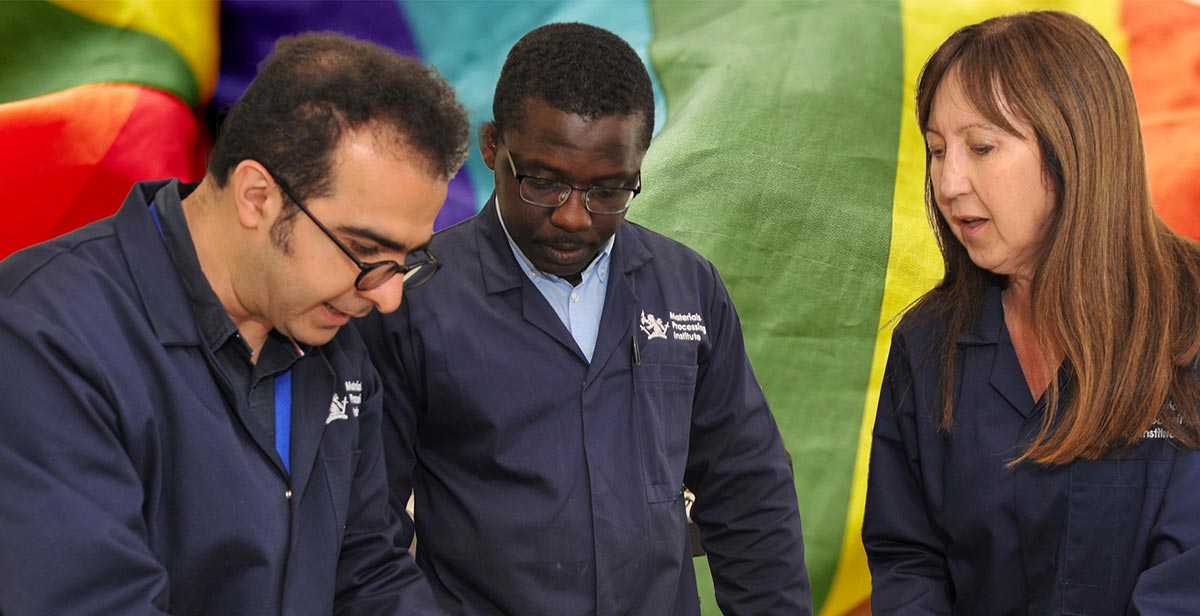
Personal Statement from the Chief Executive Officer
Many businesses have a dignity at work commitment as part of their corporate commitments to their workforce, but here at the Materials Processing Institute, it is much more personal.
Founded in 1944 to be the UK’s national centre for metals innovation, there is only one core value of the Institute, ‘integrity’. As colleagues at the Institute, our commitment to this value sets our relationships with one another, our clients, suppliers, and the wider community. We have a great culture based on integrity and mutual respect, where every colleague is valued for their contribution to the team.
I believe it is the everyday lived experience that really makes a difference to people and so it is the responsibility of all of us to ensure that everyone is treated with dignity and respect. I am personally committed to expanding our diversity beyond traditional groups in industry and for anyone considering joining our team, my message is ‘come as you are, and you will be welcome’.
Chris McDonald
Chief Executive Officer
General Principles
- Provide equality, fairness, and respect for all colleagues, whether temporary, part-time, or full-time.
- Prevent any unlawful discrimination according to the protected characteristics as set out in the Equality Act 2010, namely: age, disability, gender reassignment, marriage and civil partnership, pregnancy and maternity, race, religion or belief, sex, sexual orientation, and socio-economic background.
- Oppose all forms of discrimination whether actual, perceived, or by association.
- Oppose all forms of unlawful discrimination.
The Institute commits to:
- Encourage equality, diversity, and inclusion in the workplace.
- Create a working environment free of bullying, harassment, victimisation, and unlawful discrimination, promoting dignity and respect for all, and where individual differences and the contributions of all colleagues are recognised and valued.
- Provide learning and development opportunities for leaders, managers, and all colleagues about their rights and responsibilities under the equality, diversity, and inclusion policy. Responsibilities include colleagues conducting themselves to help the Institute provide equal opportunities in employment, and prevent bullying, harassment, victimisation, and unlawful discrimination.
- Ensure that all of colleagues understand they, as well as the Institute, can be held liable for acts of bullying, harassment, victimisation, and unlawful discrimination, in the course of their employment, against fellow colleagues, customers, suppliers and the public.
- Take seriously complaints of bullying, harassment, victimisation and unlawful discrimination by fellow colleagues, customers, suppliers, visitors, the public and any others in the course of the Institute’s work activities.
- Make opportunities for training, development, and progress available to all colleagues, who will be helped and encouraged to develop their full potential.
- Make decisions concerning colleagues on merit.
- Review employment practices and procedures when necessary to ensure fairness, and also update them and the policy to take account of changes in the law.
- Monitor the make-up of the workforce regarding information such as age, sex, ethnic background, sexual orientation, religion or belief, and disability in encouraging equality, diversity, and inclusion, and in meeting the aims and commitments set out in the equality, diversity and inclusion policy.


